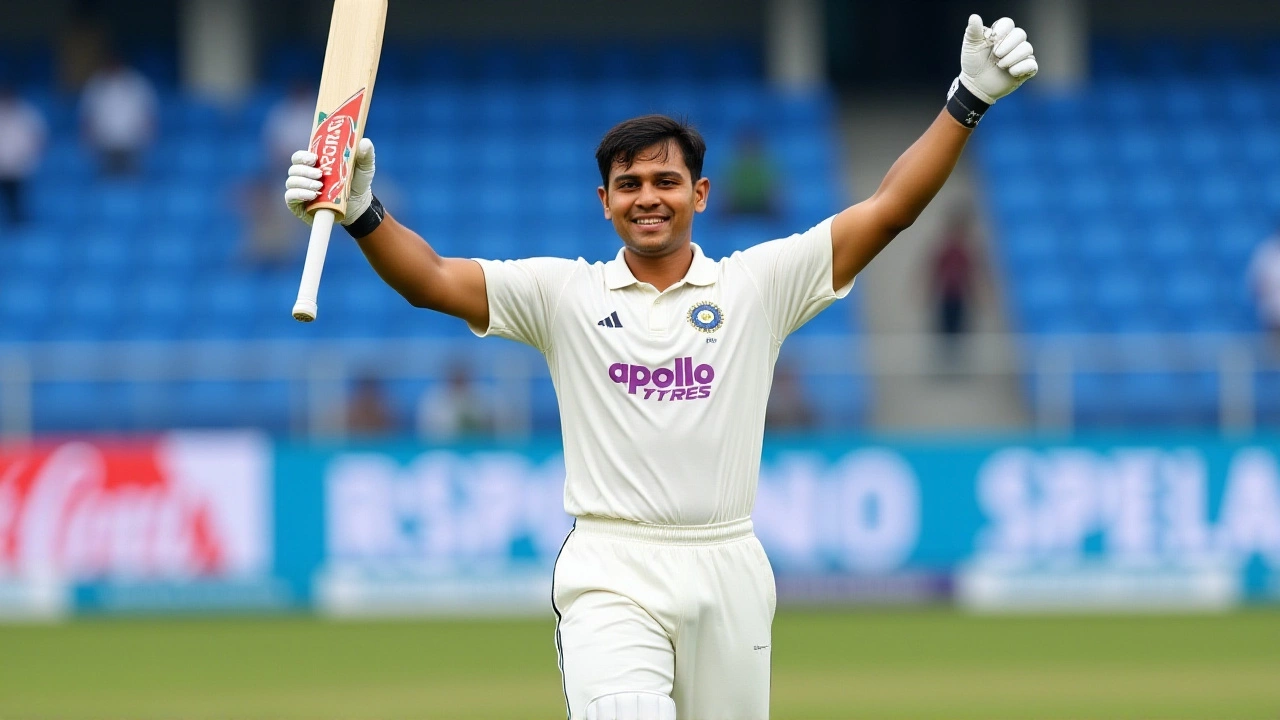India piled on the pressure against West Indies with a commanding 518/5 declaration on Day 2 of the Delhi Test, Yashasvi Jaiswal blazing 175 before a controversial run-out sparked tensions in the middle. The incident, which saw Jaiswal visibly frustrated after captain Shubman Gill refused a quick single, left the West Indies reeling at 140/4 and trailing by 378 runs as stumps ended Saturday at the Arun Jaitley Stadium. This isn't just another Test match—it's a potential series-clinching moment for India in the World Test Championship race.
Day 2 Drama Unfolds
When Yashasvi Jaiswal, Indian opener from Mumbai, drove a Jayden Seales delivery to mid-off on the eighth ball of play, the situation looked straightforward. But captain Shubman Gill, Test captain from Gujarat, abruptly pulled the plug on the run. The 26-year-old Jayden Seales, Barbados-born fast bowler had delivered the ball that set off the chain reaction—Chanderpaul's quick throw and wicketkeeper Tevin Imlach, Jamaican keeper dislodging the bails just as Jaiswal turned for the run. What happened next surprised everyone.
Jaiswal, who'd resumed his overnight 173 with hunger for the 200, stood his ground for nearly 30 seconds. He reportedly exchanged heated words with Gill before the umpire intervened. "Yeah, it's part of the game. It's fine," he later told reporters, though his body language screamed otherwise. The run-out ended a 321-run partnership that had already left West Indies feeling "bruised and battered," as one veteran commentator put it.
Gill's Century and Team Contribution
While the run-out dominated headlines, Gill's composed 129* was the anchor India needed. This marked his 10th Test century and elevated him to fifth place in World Test Championship century history—a detail that matters more than most casual fans realize. His innings came at a crucial time after India won the toss and chose to bat on a pitch that played truer than expected.
The middle order didn't let up either. Sai Sudharsan, Tamil Nadu batsman chipped in with 87, while debutant Nitish Kumar Reddy (20) and Dhruv Jurel (23) added valuable runs. For West Indies, Jomel Warrican, Jamaican off-spinner toiled hard for his 3/127, but the damage was already done when India declared just after lunch.
West Indies in the Firing Line
West Indies' batting collapse began almost immediately after India's declaration. Cricket West Indies must now confront the reality of a mountain to climb—378 runs with six wickets in hand. Kraigg Brathwaite (27), Kavem Hodge (25), and Alick Athanaze (21) all fell before tea, leaving Kirk McKenzie (15) to join the stranded Joshua Da Silva (11*).
Ravindra Jadeja, Gujarat spinner spun his magic early, claiming three wickets in the afternoon session. The left-armer's tight lines and consistent bounce exposed West Indies' technical flaws on this Delhi surface. They ended the day needing 238 more just to avoid following on—a near-impossible task against this Indian attack.
Why This Series Matters
The stakes couldn't be higher in this two-match series. Board of Control for Cricket in India understands that a clean sweep would virtually guarantee India a spot in the 2025 World Test Championship final. With Australia and South Africa struggling elsewhere, this Delhi Test could reshape the entire WTC landscape.
Former players are already calling Gill's century "career-defining" for his leadership trajectory. The captain's ability to bat through long sessions while managing team dynamics—especially after the Jaiswal incident—will be watched closely. His 10th century puts him in rarefied air alongside legends like Smith and Root in the current WTC cycle.

What Happens Next?
Day 3 promises intense action as West Indies resume with Da Silva and Imlach. The visitors need a miracle partnership, but India's bowlers smell blood. Jadeja and Axar Patel will target the left-handers, while Mohammed Siraj looks to exploit any movement off the pitch. With a 378-run lead, India can afford to be patient—they'd need just six more wickets for an innings victory.
Weather forecasts show clear skies, meaning no rain interruptions. If West Indies lose their first wicket before the 80-run mark, the follow-on becomes inevitable. Captain Brathwaite faces his toughest Test challenge yet as his team's batting depth gets exposed on this tricky surface.
Stadium History and Series Context
The Arun Jaitley Stadium, formerly Feroz Shah Kotla, has hosted 34 Tests since 1948, with India winning 20 of them. This ground witnessed Tendulkar's famous 200 and Dhoni's last Test century—the pressure on West Indies feels historic. The current pitch, however, is slower than the spin-friendly surfaces of the 2010s.
India's current 1-0 series lead dates back to the Ahmedabad victory where Jadeja took 11 wickets. That win came by 285 runs—similar to what they're eyeing here. The teams last met here in 2018 when India crushed West Indies by 257 runs; history seems ready to repeat itself in this World Test Championship cycle.
Frequently Asked Questions
What made Jaiswal's run-out so controversial?
The controversy stemmed from Gill's sudden refusal after Jaiswal had already committed to the run. Replays showed Jaiswal covered two-thirds of the ground when Gill called him back. Former players like Sourav Ganguly called it "poor communication," while others noted Jaiswal's over-eagerness. The 25-year-old's visible frustration—stopping mid-field and arguing with Gill—made it the most discussed moment of the day.
How does Gill's century impact World Test Championship standings?
Gill's 10th Test century moves him to fifth place in most WTC centuries, trailing only Smith (15), Root (14), and Kohli (11). Each series win here nets India 60 points toward the 2025 final. Given Australia's current position, a 2-0 series sweep would put India in a near-unassailable position with 78% qualification probability according to WTC models.
What's the minimum runs West Indies need to avoid following on?
West Indies must reach 140 runs to avoid the follow-on (20% of India's 518). They ended Day 2 at 140/4, meaning they've technically escaped it but remain in grave danger. Historically, teams following on at this stadium have won just once since 2000—when India beat Australia in 2017. With six wickets left, their deficit of 378 runs is the real threat.
How has the Arun Jaitley Stadium pitch played this match?
The pitch offered early swing for pacers but settled into a batting-friendly surface by Day 2. Spinners got slight turn after 80 overs, with Jadeja exploiting the rough near the pitch. Unlike the 2018 match here where spin dominated from Day 1, this surface has been more balanced—helping India's total reach 518 but also aiding their spin attack later. The 3.2°C temperature and 45% humidity kept the ball carrying well.
What happens if India wins this Test?
A win would give India a 2-0 series sweep and 120 WTC points, boosting their qualification chances to 92% for the 2025 final. It would also be India's first Test series clean sweep against West Indies since 2013. For West Indies, it would mean their 10th consecutive Test series loss—a new record for the Caribbean side. The next Test is scheduled for November 2025 in Jamaica.






